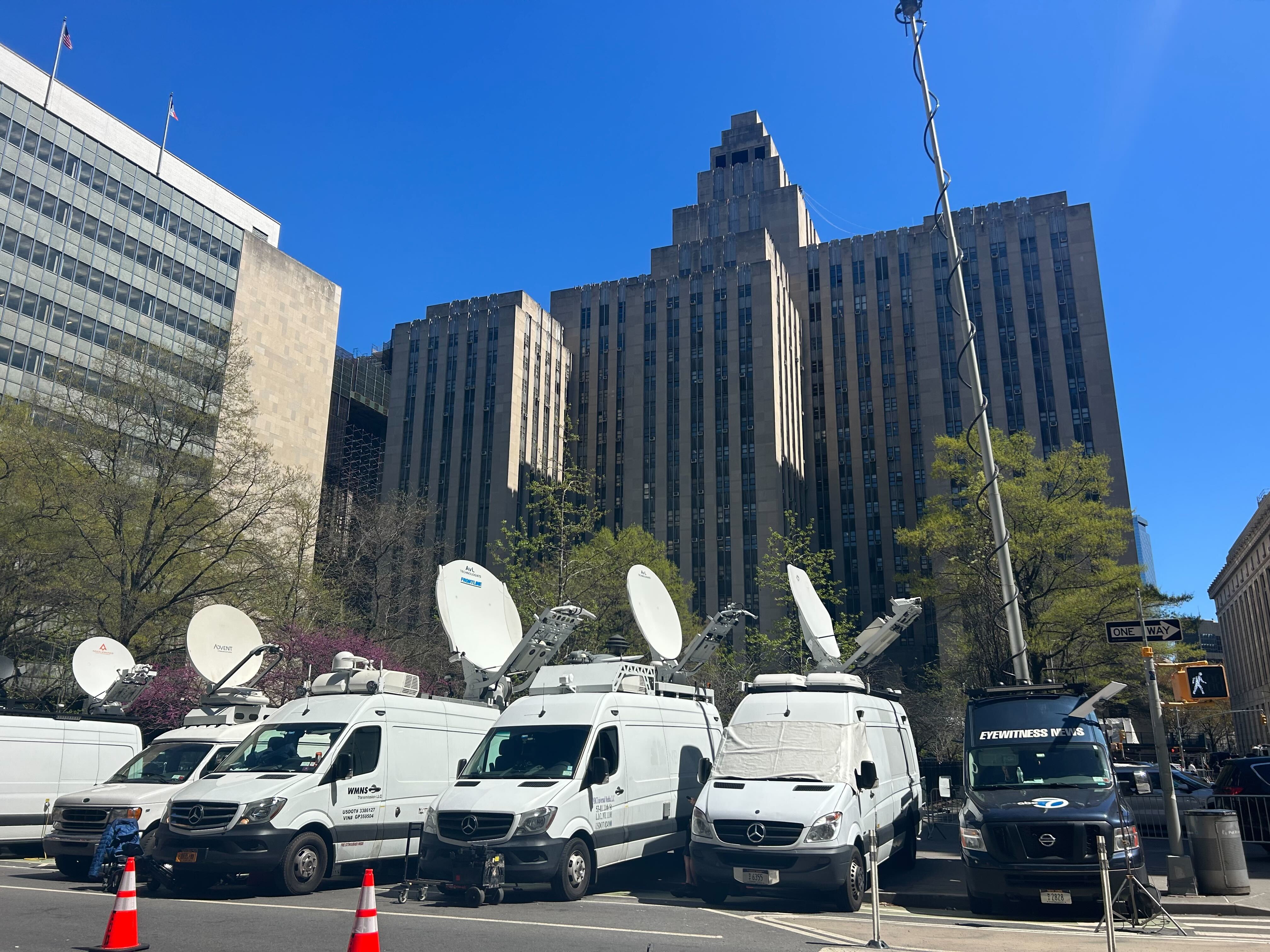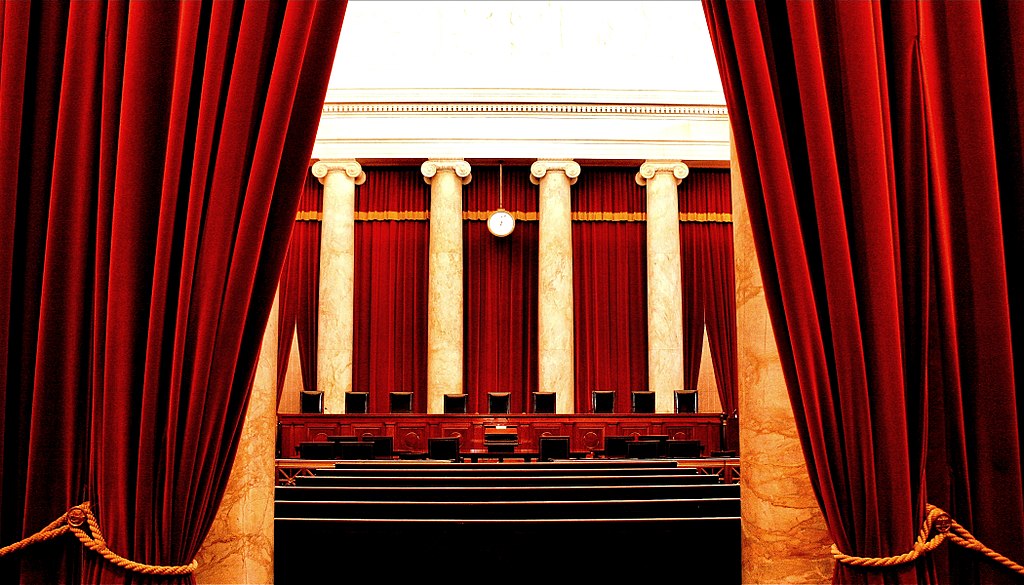What We’re Doing in New York Supreme Court

Published by The Lawfare Institute
in Cooperation With

The New York criminal trial of Donald Trump is sufficiently unlike anything Lawfare has covered before that I thought a few words of explanation of our plans seem in order.
Let me start by addressing a question a number of people have asked me: Why are we covering this case at all?
The answer is not entirely obvious, and the question of whether we should cover it—much less do so intensively, as we are planning to do—has generated some discussion internally.
Lawfare is, after all, not a general legal publication. We focus on national security legal issues only, albeit with a conception of national security that is far broader than the way some people construe the term—one that includes foundational concerns of democratic health and the rule of law, for example.
As such, we largely ignored a lot of Trump litigation that other publications covered in great depth. We mostly did not cover, for example, the E. Jean Carroll defamation cases or the New York criminal trial of the Trump Organization and its officers. We also stood down in the state attorney general’s gigantic civil fraud case against the Trump Organization.
The logic here was simple: As important as these cases may be, we are emphatically not a Trump litigation publication. We are a national security publication. So we cover the Jan. 6 cases, both at the state and federal levels. And we cover cases involving mishandling of classified documents. The national security interests in such matters require no explanation. What’s more, the democracy-protection concerns associated with the alleged abuses of presidential power in those cases raise inherent national security issues—as does the whole prospect of electing to office a convicted felon.
That said, we don’t cover litigation over alleged defamation concerning alleged sexual assaults—except insofar as such matters may relate to the Justice Department’s interpretation of liability protections for former officials—and we don’t cover business fraud.
But where does this leave the New York case? Unlike the other three cases against Trump, the issues at stake here—hush money payments and falsification of business records for electoral advantage—are not obviously national security matters. They don’t involve the storming of the Capitol or the mishandling of classified information. They don’t involve an attempt to overturn an election.
Nonetheless, for a complicated and interrelated set of reasons, we think the best approach is to treat this case as within Lawfare’s scope, acknowledging that reasonable minds might make a different editorial judgment on the subject. Some of the facts we considered in making this decision are the following:
There are nontrivial election integrity issues at stake in this case. In recent weeks, there has been a considerable effort to reframe the entire case as essentially about election interference. This puts more weight on the election interference matters at stake in the case than they will bear. But it’s not wrong to say that the Stormy Daniels matter underlines Trump’s willingness to play dirty when it comes to winning elections, which speaks both to past scandals and the looming question of how he will behave in the current electoral cycle. Particularly given both the conduct described in the Mueller report and Jan. 6, the New York case is not not about election interference.
Genetically speaking, this prosecution descends in a linear fashion from other matters that we have covered and is closely related to still others. The Mueller investigation led to the indictment of Michael Cohen in the Southern District of New York over the Stormy Daniels payments, which itself led to the Manhattan district attorney’s investigation into Trump. Lawfare also has published important articles about this case in the context of impeachments, for example, and this is actually the same investigation that gave us the Trump v. Vance litigation in the Supreme Court, a matter we covered extensively.
The backstory of the case, at both the federal and state levels, speaks to the justice system’s ability to independently investigate a sitting president—a matter of traditional concern to Lawfare. Former U.S. Attorney for the Southern District of New York Geoffrey Berman has described efforts by Attorney General Bill Barr to derail the federal investigation of the hush money scheme. Trump v. Vance concerned Trump’s efforts to block the Manhattan District Attorney’s Office from obtaining financial records in the course of its investigation, on the grounds of claimed presidential immunity. The trial represents the latest stage of this process.
Of particular importance to me, it seems artificial to lop off one of four criminal trials against a former president who is currently seeking the office anew when we are partly studying the question of the role criminal prosecution might play in either protecting democracy or martyring a dangerous demagogue. The problem of what to do about an allegedly criminal former president is a table with four legs right now: one in Washington, one in Florida, one in Atlanta, and one in New York. Cutting one off and throwing it away because that one leg lies at the margins of our jurisdiction seems inappropriate and risks misunderstanding the table.
- This is particularly true because the New York case may be the only one of the Trump criminal cases to go to trial before the election. It thus may bear the entire burden of the question of what role criminal conviction will, can, or should play in the selection of a president. That question is certainly within Lawfare’s jurisdiction.
For all of these reasons, and a few other less important ones, we made the decision that the better part of valor is for us to consider the trial as within Lawfare’s scope. We also made the decision that if we are going to cover the case, we should throw at it the full weight of Lawfare’s capacity to add value to legal conversations. We have, after all, a unique set of reporting, analytical, and academic resources at our disposal. If we’re going to cover a trial, we are going to do it right.
So what are we going to do? Here’s a basic overview of our plans:
First, Anna Bower plans to live-tweet the proceedings, as Tyler McBrien has been doing this week.
Second, we will be publishing dispatches from the courthouse twice weekly on Wednesdays and Saturdays (the court does not sit on Wednesdays). Wednesdays’ dispatches will cover proceedings from Mondays and Tuesdays; Saturdays’ dispatches will cover Thursdays and Fridays. The first of these, written by Tyler McBrien, we published this Wednesday. The second will run tomorrow.
Third, we will be publishing more-opinionated distillations of these dispatches in cooperation with my old colleagues at the Washington Post opinion pages. These will also run on Wednesdays and Saturdays.
Fourth, we will be doing daily livestreams on our YouTube channel each day in which court is in session. These will be shorter than our weekly livestream and will focus on giving a rigorous summary of the day’s events in court. Audio of these sessions will run on the Lawfare Podcast feed.
- Fifth, we will be doing the weekly Trump’s Trials & Tribulations livestream on Wednesdays, the court’s day off, instead of Thursdays—when we have been running them up until now. We’ll continue to cover all four criminal cases against Trump. As always, Material Supporters of Lawfare will be able to join us via Riverside and ask questions live. The livestream will also be broadcast on our YouTube channel and be released as a podcast on the Lawfare Podcast feed on Thursdays.
I will also be writing diary entries on the trial on my Substack, #DogShirtDaily.



